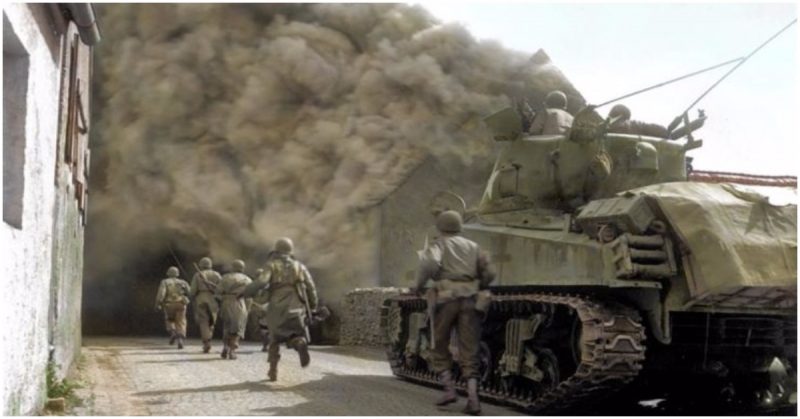Colourised photographs of tanks during World War II in Nazi Germany show just how the arms race to develop the ultimate tank progressed for all sides during this most devastating of conflicts.
The spectacular pictures reveal infantrymen with a tank of the 11th Armoured Division, 3rd US Army advancing through a smoke-filled street in Germany, while another image depicts the more basic M4A3 Sherman tank advancing into the center of Kronach in April, 1945.
Other photographs show German artillerymen shoot Soviet tanks, while another exposes a more technically advanced and fearsome snow-covered German Panzer tank being used by two German soldiers.
Further colourised images unfold the consequences of operating an army tank in the middle of a flood with a soldier trailing through the water on his motorcycle.
The incredible pictures were brought to life by Royston Leonard (55), an electrician from Wales, UK, who took the time to carefully colourise the photographs, highlighting the true occurrence of the war and the weapons used.
“The pictures show the long journey to victory after D Day and the hard life of the tank crews, two of the photos show pictures from north Africa from the early part of the war,” he said.
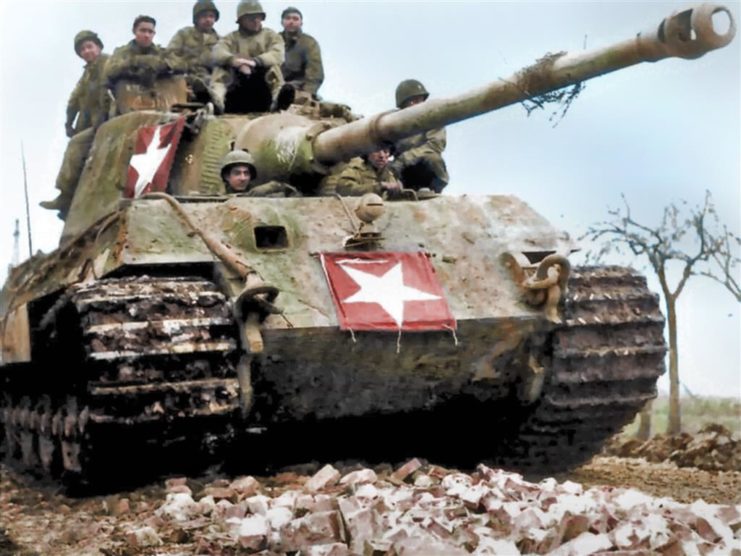
“They are meant to show life of the tanks and crews in war working with the army in battle.”
Royston says that it has taken him over 60 hours of work spread over weeks of evenings and the point of this is to show the younger generation that war was real and not just black and white art like the way some see it.
“Life is hard and can be short for a tank crew there at the front of a battle as with all armies any equipment left by the enemy forces gets reused when possible as shown in the pictures,” he said.
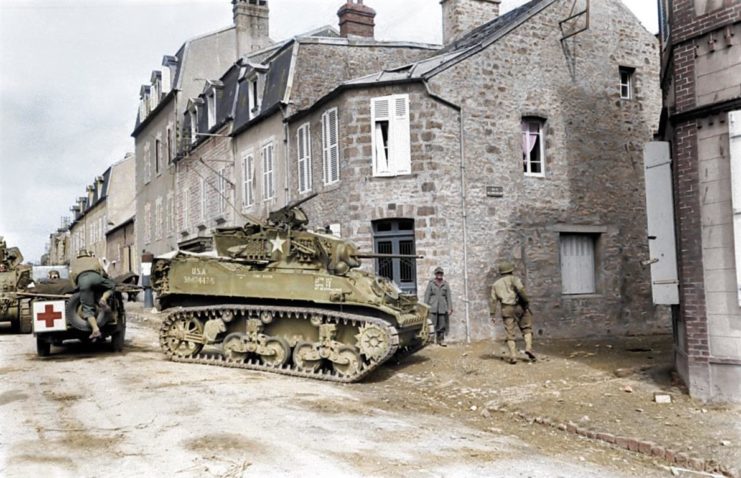
The Panzer III tank was created to fight other tanks, yet during Operation Barbarossa, the German invasion of the Soviet Union in 1941, it was found that the Soviet T-34 tank beat the Panzer III and IV; its ramp shape could survive most German weapons and its 76.2 mm gun could infiltrate the armour of all German tanks.
This motivated Germans to update their models as the arms race for the ultimate WW2 tanks continued to the end of the war in June 1945.
The striking colourised image is featured in British author Michael D. Carroll’s new book on the colourisation of historical images. For more information visit HERE.
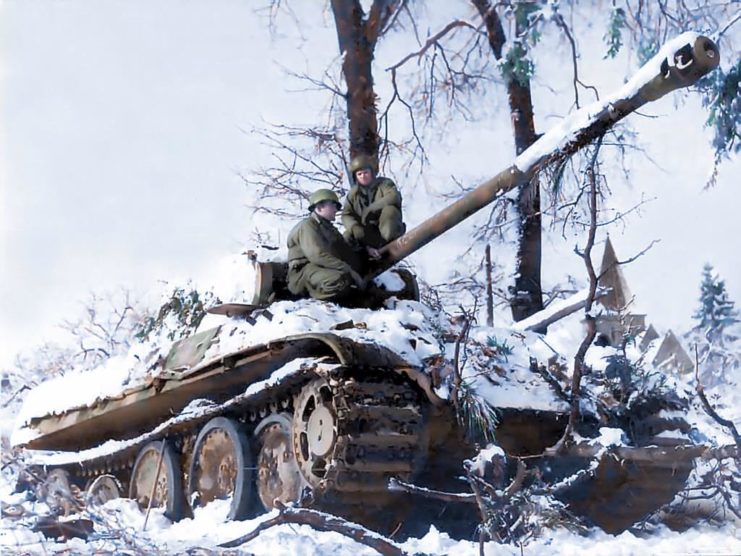
“Throughout history, uniforms, badges, ensigns and signals have used colour to communicate information to combatants in the battlefield,” said Michael.
“This tradition of using colour to signal was most famously used in medieval heraldry but extends back to the ancient armies of Rome and Greece.
“In modern warfare of the photographic period, this became highly sophisticated and this level of critical communication is missing from images taken in black and white.”
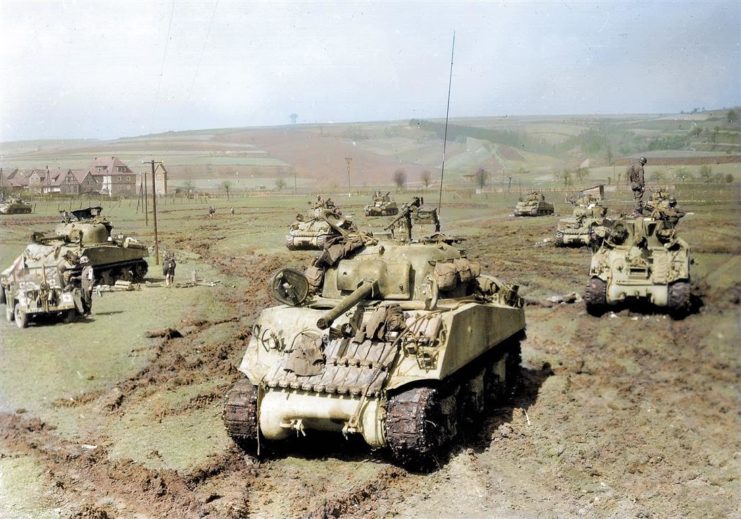
Michael D. Carroll is a journalist and author with a particular interest in historical photography.
From his base in Birmingham, UK he directs bespoke press agency mediadrumworld.com, and through his work at the agency, Michael came into contact with the thriving community of colourisors of historical images.
After placing several colourised history features into the national newspapers in the UK, he enlisted the support of this community to publish Retrographic, the first book to present a specially curated selection of iconic historical images in living colour.
To join Retrographic visit Facebook page.
With the support of ambassadors from the world’s first society for photographers, the Royal Photographic Society, UK, images and reviews on Retrographic have been featured in newspapers and online zines, including the Daily Mail, Telegraph, Times, Fstoppers, War History Online, and ePHOTOzine.
https://www.youtube.com/watch?time_continue=1&v=dvvZZVPrkdY
